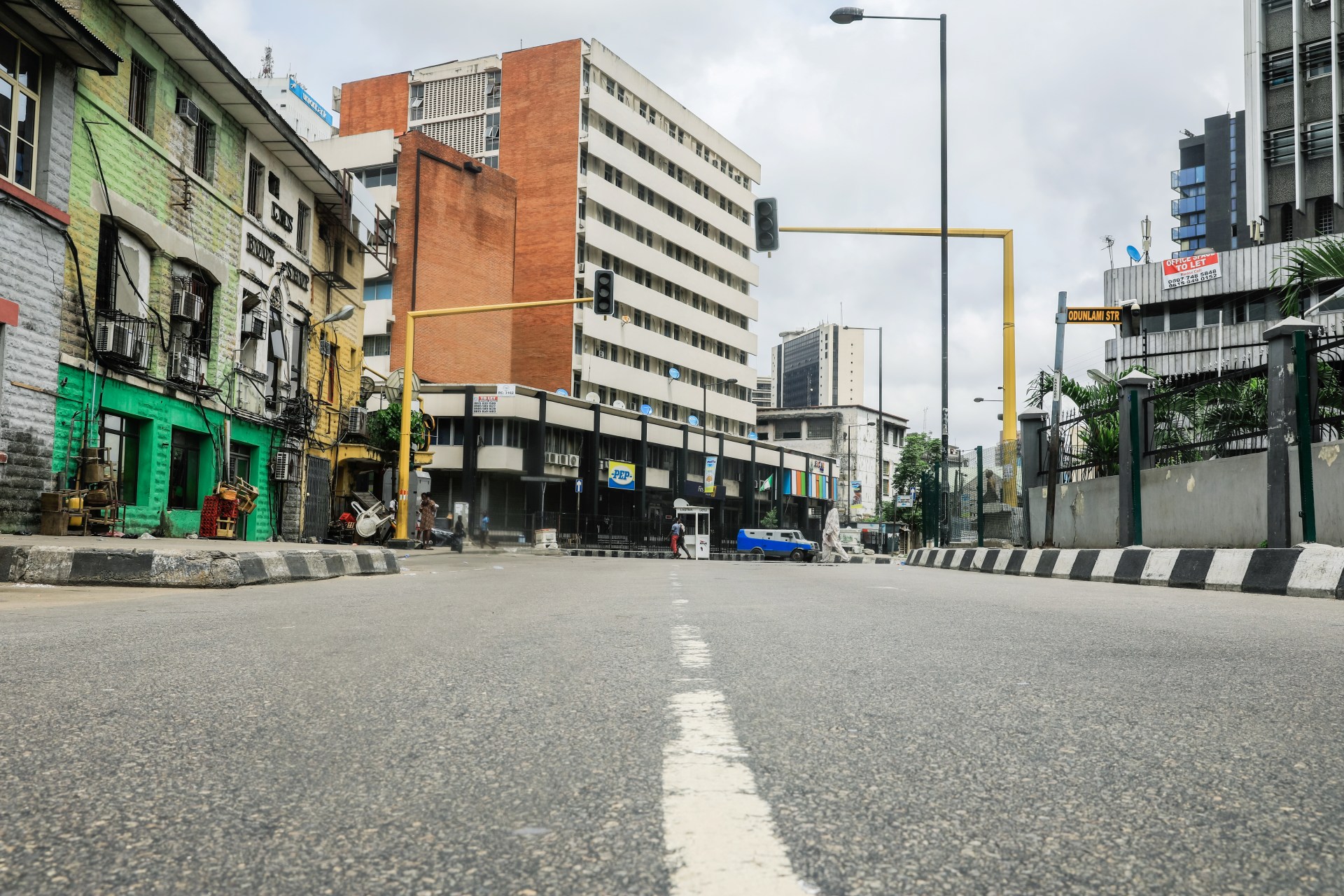Lagos and Abuja on Lockdown to Stop Coronavirus in Nigeria

By experts and staff
- Published
By
- John CampbellRalph Bunche Senior Fellow for Africa Policy Studies
President Buhari has ordered the lockdown of Lagos and Abuja, Nigeria’s commercial and political capitals, as part of the effort to contain the coronavirus. Lagos poses enormous challenges to “social distancing,” but also has governance advantages other parts of Nigeria lack. Abuja is less crowded and in some areas has better infrastructure. It is also under the direct control of the Federal government. According to the Johns Hopkins University coronavirus tracker, as of the morning of April 1, Nigeria had 140 active confirmed cases, 2 deaths, and 9 people recovered. Nigeria recorded its first case of coronavirus in the country on February 25.
Lagos dominates the Nigerian modern economy and cultural life to a greater extent than New York City does in the United States. Like New York, Lagos, ostensibly a Yoruba city, attracts residents from all over Nigeria, and is a travel hub for people in West Africa. Nobody quite knows how many people live there (a credible estimate is about 22 million) or even what the boundaries of the metropolitan area are. Usually the city and state of Lagos are joined together, and President Buhari’s order added adjacent Ogun state. The city is built on islands in a lagoon and adjacent swamps. Potable water and drainage is always an issue. While there are pockets of wealth, poverty is ubiquitous. Most Lagosians live packed together in slums. The informal economy is far larger than the formal one; “everybody has a hustle,” and much of that activity involves face-to-face contact. This means of livelihood is now threatened by the lockdown.
Lagos always has a heavy disease burden in normal times. In this time of coronavirus, Lagos and Nigeria also face outbreaks of Lassa fever, and malaria is present, as always. Life expectancy in Nigeria is fifty-five years compared to seventy-eight years in the United States. Abuja, too, has millions packed into informal settlements outside the monumental core, but it faces public health challenges of less magnitude than Lagos.
Lagos is also unique in that it has had a series of reforming governors that have delivered services largely absent elsewhere in Nigeria. Much of its funding comes from local taxation, rather than oil and other revenue allocated by the Federal government. Observers see something of a social contract emerging: residents pay taxes and the Lagos government provides services. The gulf between the government and the governed appears less than elsewhere in Nigeria. Notably, it was the Lagos state government that took the lead in successfully containing the Ebola virus with general cooperation from the local population during the 2014 to 2016 Ebola outbreak in West Africa.
Hence, it is to be hoped that that there will again be public cooperation with the lockdown. The Federal government will be enforcing the lockdown by using the Nigerian army. Ever since the colonial period, governments have used the army for domestic purposes. But, soldiers are often poorly trained and with their salaries in arrears, making them more susceptible to corruption and abuse. They are not known for their subtle treatment of civilians. Their misbehavior has the potential for turning Lagosians against government authority. There is already a long tradition of Lagosian hostility to the central government—whether colonial, military, or civilian.
It is not clear that the state government would have had the authority to lockdown a city, as New York Governor Andrew Cuomo did. Even if it could, Lagos state lacks the capacity to enforce such a lockdown. There is no regular local police in Nigeria—the Nigeria Police Service is a gendarmerie controlled by the federal government; members of the police force are even less trained and more poorly paid than army soldiers. It is not clear that even the federal government has the capacity to enforce a lockdown or, perhaps more importantly, to mitigate significantly the increased hardship now faced by Lagosians.